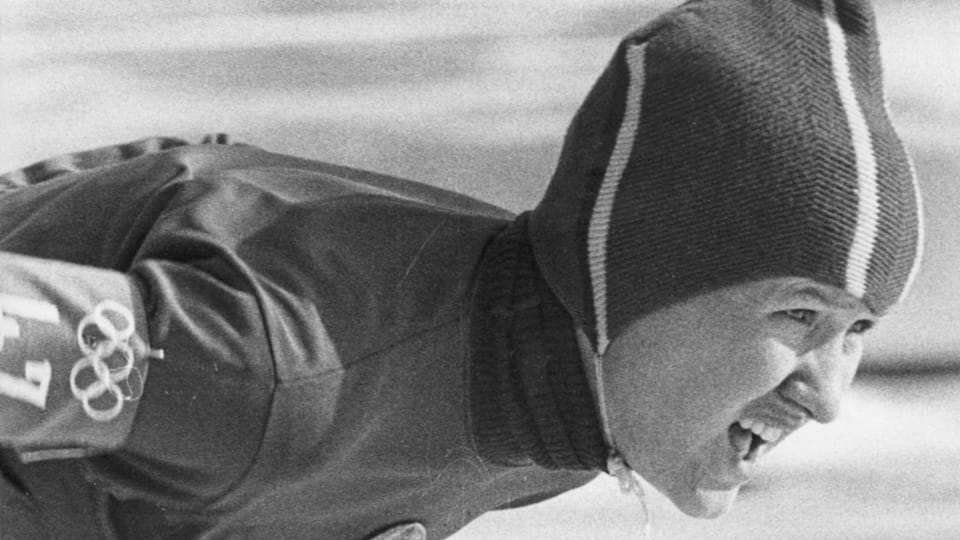
A student and later a school teacher from Chelyabinsk in the Urals, Skoblikova burst on to the domestic scene at the age of 17, setting national 1,500m and 3,000m records. Drafted into the USSR team, she starred at the ISU World Championships in 1959 and 1960, collecting all-round bronzes on both occasions and winning the 1,500m and 3,000m, distances at which she also won gold at Squaw Valley 1960, taking the honours in the shorter of the two events with a world record time of 2:52.2.
Though she had achieved all this before even turning 21, the best was yet to come for the prodigiously gifted Skoblikova, who would extend her repertoire to the 500m and 1,000m events. After picking up a silver medal at the 1962 World Championships, she followed up a year later by winning world gold in all four distances in Kariuzawa (JAP), a haul that included a new 1,000m world record of 1:31.8 and provided a sign of things to come in Austria the following year.
The Innsbruck 1964 women’s speed skating competition began on 30 January with the 500m, the only event that Skoblikova, a dominant force over longer distances, did not start as favourite. Skating against Poland’s Helena Pilejczyk in the opening pair, the USSR’s Irina Yegorova laid down on early marker by setting a new Olympic record of 45.4, a time that was still the benchmark when Skoblikova went out in the 13th and penultimate pair with Polish skater Adelhajda Mroske.
Into her stride early on the Innsbruck ice, Skoblikova stopped the clock at 45 seconds dead to set a new Olympic record of her own and head up a Soviet one-two-three, with Yegorova taking silver and Tatyana Sidorova bronze.
Skoblikova defended her 1,500m title the very next day, with team-mate Berta Kolokoltseva setting the early pace with a time of 2:27.1 before Finland’s Kaija Mustonenc, skating in the seventh pair with the USA’s Janice Lawler, went 1.6 seconds faster to move into the lead.
Venturing out in pair ten with Helga Haase of Germany – the 500m champion at Squaw Valley 1960 – Skoblikova was level pegging with Mustonen and Kolokoltseva at the end of lap two but then pulled clear on lap three, eventually setting an Olympic record of 2:22.6 to win her second gold of the Games and her fourth Olympic title in all. The Finn and Kolokoltseva completed the podium.
Day three of the competition brought the 1,000m, which saw Yegorova once again make the early running, the Soviet stopping the clock at 1:34.3, a time that Mustonen narrowly failed to match.
Paired with Canada’s Doreen Ryan, Skoblikova found herself behind Yegorova at the 600m mark but turned in a blistering sprint finish to shave two tenths off her compatriot’s time and post another OR to make it three golds in as many days. Just as she had done in the 500m, Yegorova took silver, while Mustonen collected bronze.
Twenty-four hours later came Skoblikova’s 3,000m title defence. The event began with fellow Soviet Valentina Stenina completing the seven laps in a time of 5:18.5. Setting off three pairs later, the insatiable Skoblikova moved into the overall lead at the end of lap five and remained there, coming home nearly four seconds clear of her fellow countrywoman Stenina, whose time was then surprisingly matched by Han Pil-Hwa of the People’s Democratic Republic of Korea. The North Korean skater’s silver was her country’s very first Winter Games medal.
Skoblikova’s 1964 grand slam has never been equalled by a female skater, while her overall tally of six Olympic golds remains unmatched in the sport as a whole. Only the USA’s Eric Heiden has achieved anything comparable, winning all five men’s events at Lake Placid 1980.
Skoblikova, who went on to set a new 3,000m world record of 5:05.9 in Oslo (NOR) in 1967, made her third Olympic appearance at Grenoble 1968, where she finished sixth in the same event.After resuming her studies and becoming a physiology instructor, she received the Olympic Order (silver) from the then IOC President Juan Antonio Samaranch in 1983. She was one of eight Russian sports personalities to carry the Olympic banner at the Opening Ceremony of the XXII Winter Games in Sochi.
